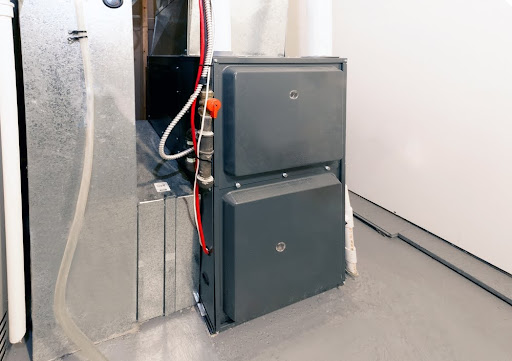Heating systems are an essential part of any home, particularly in areas like ours, where the cooler climate brings out harsh winters. When it comes to choosing a heating system, the debate between gas and electric furnaces is a hot topic. Let’s unravel the complexities of both gas and electric furnaces, helping you make an informed decision on what’s best for your home.
Understanding the Basics: Electric vs Gas Furnace
At the core of the electric vs gas furnace debate is a simple difference in operation and energy source. Electric furnaces use electric heating elements to produce heat, while gas furnaces combust natural gas to generate warmth. This fundamental difference influences everything from installation costs to heating costs and energy efficiency.
The Mechanism of Gas and Electric Furnaces
A gas furnace system operates by burning natural gas in a heat exchanger to warm the air. This process involves a gas line and often requires a vent for expelling emissions like carbon monoxide. On the other hand, electric furnaces work by passing air over heated electric coils, distributing warm air throughout your home without the need for combusted fuel.
Gas Furnace’s Lifespan vs Electric Furnace
Generally, a natural gas furnace boasts a longer lifespan compared to its electric counterpart. However, this can be influenced by regular maintenance, the quality of installation, and the furnace system’s design.
Comparing Costs and Energy Efficiency
One of the most significant considerations in the gas vs electric furnace debate is cost. This includes not only the initial cost but also the long-term utility costs.
Initial Installation Costs
The installation costs for a gas furnace typically exceed those of an electric furnace. This is due to the complexity of installing a gas line and the safety concerns associated with gas systems. However, in areas with an existing natural gas line, this cost may be reduced.
Utility Bills and Energy Efficiency
Gas furnaces are often celebrated for their high efficiency, with Annual Fuel Utilization Efficiency (AFUE) ratings usually higher than electric models. This translates to lower energy costs in the long run, despite the higher initial investment. Electric furnaces, while having a higher efficiency rate due to their lack of heat loss through venting, often lead to higher monthly energy bills due to the cost of electricity.
The Climate Factor
In warmer climates, the less expensive electric furnace may make financial sense, especially considering the reduced need for a powerful heating system. Conversely, in colder climates, the efficiency and power of a natural gas furnace might be necessary to maintain a desired temperature effectively.
Maintenance and Safety
Both types of furnaces require annual heating maintenance to ensure efficient operation. However, gas furnaces need regular maintenance due to the potential risks of carbon monoxide leaks and other gas-related issues.
Safety Concerns
Carbon monoxide leak is a significant concern with gas furnaces. It’s vital to have carbon monoxide detectors installed and to ensure your gas furnace is regularly checked by a certified heating and cooling contractor. Electric furnaces, lacking combustion, do not have this risk, making them a safer option in terms of potential gas leaks.
Longevity and Regular Maintenance
While electric furnaces have fewer interior components and are less prone to breakdown, they still require regular maintenance to ensure longevity. Gas furnaces, with more complex components like pilot lights and gas lines, demand more extensive annual maintenance.
The Verdict: Making the Right Choice for Your Home
Choosing the right furnace for your home involves considering your current furnace setup, energy source availability, utility costs, and personal preferences regarding safety and maintenance. In regions with colder climates and affordable natural gas, a high-efficiency gas furnace might make the most sense. Alternatively, in warmer climates or areas without easy access to natural gas, an electric furnace could be more appropriate.
Considering the Environment and Future Cost Savings
Increased energy efficiency is a key factor in the debate. Gas furnaces, with their higher AFUE ratings, offer better environmental performance compared to electric furnaces. However, the future of energy sources and potential cost savings should also be considered, as the shift towards renewable energy might favor electric heating systems.
Stay Warm Through the Winter
Whether you choose a gas or electric furnace, remember that both systems require a skilled professional for heating installation in St. Cloud. Neighborhood Plumbing Heating Cooling & Electrical offers extensive experience installing equipment of both types. We ensure your new gas or electric furnace not only meets your heating needs but also aligns with your environmental concerns and budget.
Ready to upgrade your heating system? Contact Neighborhood Plumbing Heating Cooling & Electrical today for a consultation. Our team of experts will guide you through the process, ensuring you get the best furnace system for your home. With our expertise in both gas and electric furnaces, we guarantee a solution that brings comfort, efficiency, and peace of mind.




